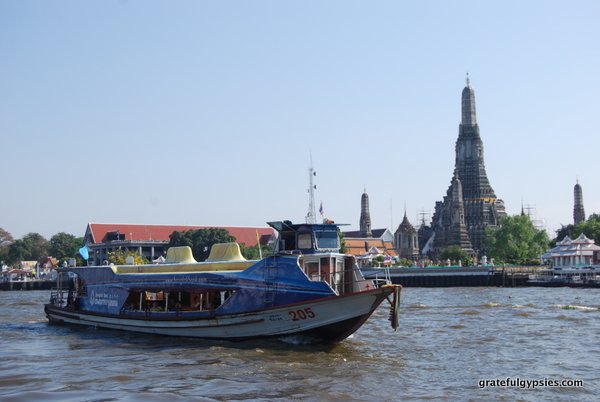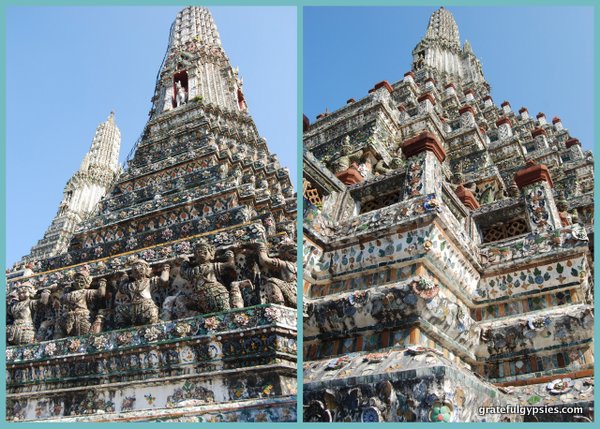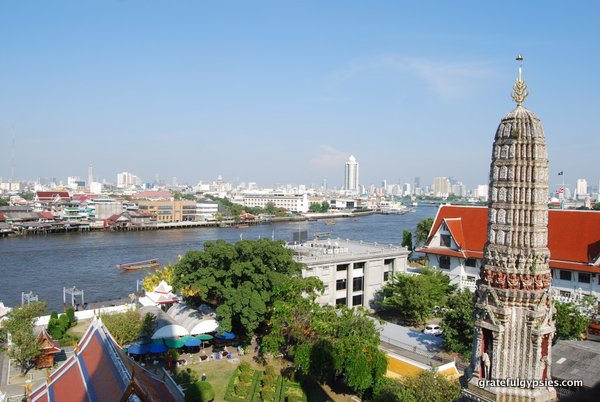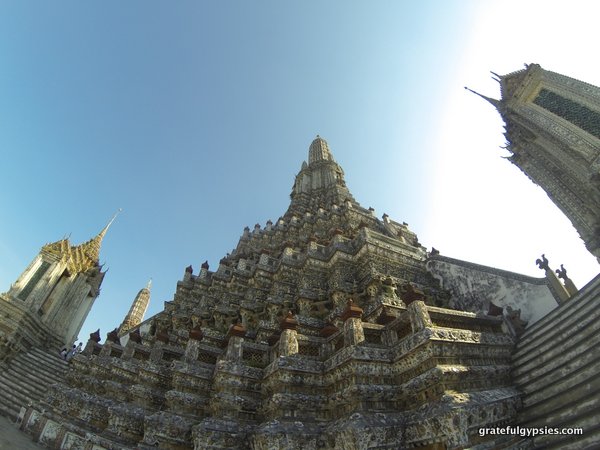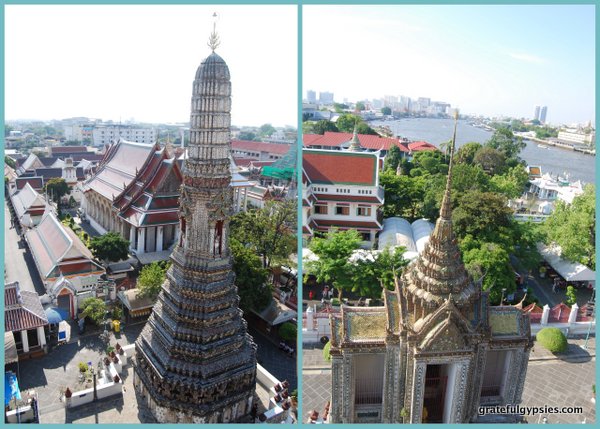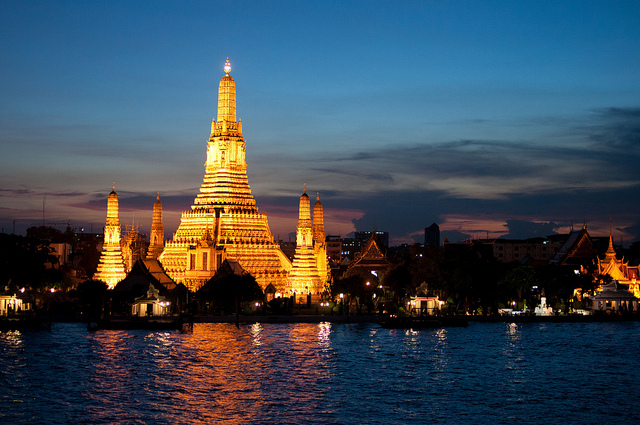Wat Arun – Temple of Dawn Posted by sasha on Jan 24, 2017 in Culture, Travel
Bangkok is home to hundreds of temples, including the amazing Temple of the Emerald Buddha and Temple of the Reclining Buddha. Another temple that you just can’t miss is Wat Arun (วัดอรุณ wát a-run), also known as the Temple of Dawn. Here’s a brief guide to this stunning temple, starting with a bit of history.
History
After the fall of Ayutthaya, King Taksin (ตากสิน dtàak sĭn) established his new capital in Thonburi (ธนบุรี ton-bù-ree) on the west bank of the Chao Phraya River. A temple already existed here, and as the story goes Taksin vowed to renovate it after passing it at dawn. He named it Wat Chaeng and built a royal palace around it. The temple housed the sacred Emerald Buddha relic until his successor – Rama I – moved the capital across the river and established Wat Phra Kaew. The temple was eventually renamed after the Indian God of Dawn – Aruna.
The Temple
This temple is an architectural representation of Mt. Meru, the center of the world according to Buddhist cosmology. The highlight of Wat Arun is the central prang (Khmer style tower), which is 82-meters tall and encrusted with colorful porcelain. Construction of this tower didn’t begin until the reign of Rama II, and finished up with Rama III. The porcelain came from Chinese ships that used it as ballast and discarded it when calling at the port of Bangkok.
It’s possible to climb the tower using very steep steps. From the top, you’re treated to incredible views of the river and the cityscape.
At the base of the tower, there are statues of Chinese soldiers and animals. On the four corners surrounding it are four smaller satellite prangs, dedicated to the wind god Phra Phai. These are also decorated with bits of porcelain, as well as seashells. Over the second terrace, you’ll find a few statues of the Hindu God Indra riding on Erawan, a mythological white elephant.
In the Ordination Hall, you’ll see the Niramitr Buddha image that was supposedly designed by Rama II, whose ashes are actually enshrined here. The beautiful murals in here date from the reign of Rama V.
Plan Your Visit
Wat Arun is located on the west side of the Chao Phraya River, just opposite the Tha Thien Pier. After visiting Wat Pho, you can walk down to the river and catch the local ferry across. The temple is open from 8 AM-5:30 PM and costs 50 Baht to visit. Consider timing your visit towards the end of the day. That way you can see the temple when it becomes illuminated after the sun goes down. It may be called the Temple of Dawn, but it looks the best at dusk! Grab a table at one of the many riverside restaurants/bars after your visit and enjoy the beautiful views.

Build vocabulary, practice pronunciation, and more with Transparent Language Online. Available anytime, anywhere, on any device.



